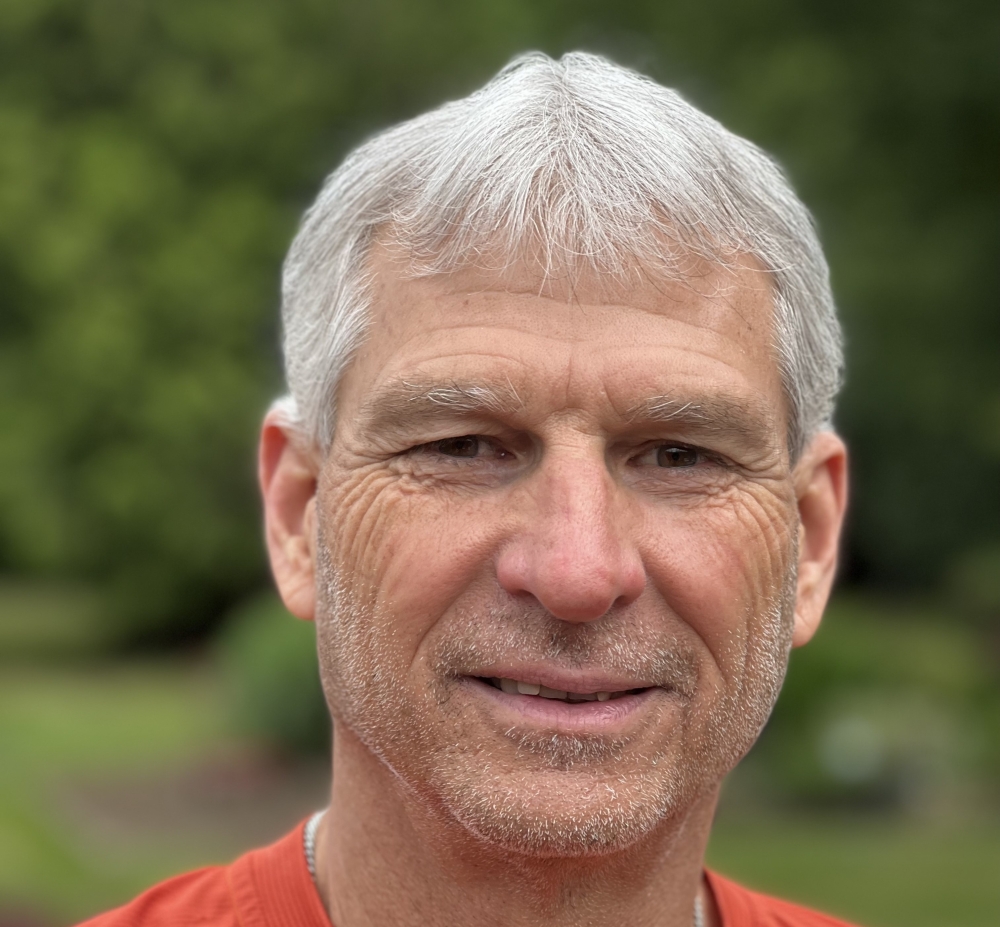Ron Holcomb (76, Journalism, Biology, and Natural Resources) grew up near the Santa Barbara coast and mountains. He loved surfing the pristine beaches and hiking the Santa Ynez mountains.
However, in 1969, an oil well blowout several miles at sea spilled 3 million gallons of crude oil onto nearby beaches, including those that Holcomb visited. This disaster polluted the water, turned the waves black, and killed thousands of birds and marine animals along the coast.
“We were horrified by it,” Holcomb says, “I was in high school when it happened, and it strongly impacted me. Cleanup workers were using hay to soak up the oil, but it seemed to make more of a mess,” Holcomb says.
This disaster was the largest oil spill in the U.S. at the time, one that helped ignite the modern era of environmental activism and Holcomb’s own personal journey to environmental advocacy. In a way, this environmental disaster inspired his 40-year career in environmental protection, including 26 years as an oil and hazardous material spill responder for the state of Washington.
“I saw what the oil spill did to wildlife, the environment, and our beaches—it was personal. And that impression of the disaster stayed with me for a long time. I knew environmental studies was something I wanted to pursue to try to make a difference to protect the environment.”
Holcomb transferred to Humboldt in 1973 after attending Whitworth University, a small college in Spokane, Wash., hoping to attend a school with a more robust environmental science and journalism curriculum. His goal was to be a journalist specializing in environmental issues.
Studying journalism, environmental science, and biology was a natural fit. As a Journalism student, he was a reporter for the University’s student-run newspaper, The Lumberjack, and the KHSU radio station. As part of his science studies, he worked with Forestry Professor Rudolph Becking, an expert in coastal redwoods, who had a hand in creating Redwood National Park. He provided Holcomb with inspiration, support, and motivation to continue pursuing a career in environmental protection.
“Rudy Becking was an amazing professor. I felt very fortunate to have studied under him. He took one of our classes on an overnight backpacking trip into Redwood National Park. It was a very cool and memorable experience. He was instrumental in helping keep that fire in me alive about understanding and protecting the natural world,” Holcomb says.
Holcomb also received a push to continue on the environmental journalist route from Humboldt Journalism Professor Mark Larson, who suggested he continue his studies at the University of Wisconsin, which had a unique Environmental Communications graduate program.
“Environmental journalism was a fairly new concept in the ‘70s. At the time, the University of Wisconsin had the only graduate program in the country that offered this degree. I had received several daily newspaper reporting job offers after I graduated, but nothing with an environmental emphasis. So thanks to Mark Larson, I decided to go to Wisconsin, which was a turning point in my career and one of my best decisions,” Holcomb says.
Holcomb studied advanced journalism and environmental science at the University of Wisconsin. He wrote science articles for the university's news service and formed relationships with the Wisconsin Department of Natural Resources, where he was hired full-time after obtaining his Master of Science degree.
Holcomb was a Public Information Officer in DNR’s Northwest district office before joining the Washington State Department of Ecology in 1980. He later became a full-time oil and hazardous material spill responder for 26 years before retiring in 2020.
As an oil and hazardous spill responder, Holcomb managed environmental disasters, including ships and tanker trucks, fuel spills, train crashes, catastrophic floods and other natural disasters, and meth labs and toxic chemical incidents.
“My job as a spill responder was very much boots-on-the-ground and hands-on. In a newspaper profile, I described our job as environmental medics. We would triage the environmental disaster, stabilize the situation, and then ‘heal’ the damage caused by the pollution, whether it was oil or a chemical. The work was often difficult and dangerous but very satisfying,” Holcomb said.
In his retirement, Holcomb wrote Constant Chaos: The Daily Battle to Protect the Environment, detailing his career and documenting some of Washington's most significant environmental disasters. His motivation for the book was to raise awareness about small and large environmental disasters that occur daily and to motivate young people and students to pursue a career in environmental protection.
“Environmental incidents happen every day, and many go unnoticed by the public. I wanted to inform people about these events in an interesting and engaging way. My goal was to create informative yet compelling content that could capture readers' attention,” Holcomb says. “The hands-on experience at Humboldt built a solid foundation that helped me throughout my career.”
Photo: Ron Holcomb had a 40-year career in environmental protection, including 26 years as an oil and hazardous materials spill responder. He documented his experiences in his recent book, “Constant Chaos.”

